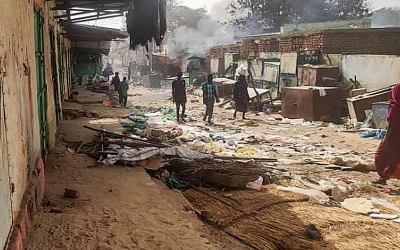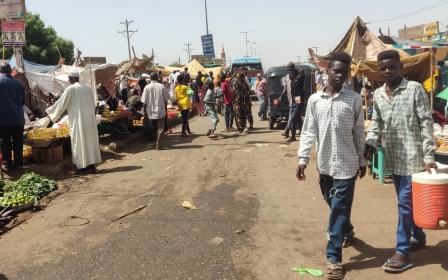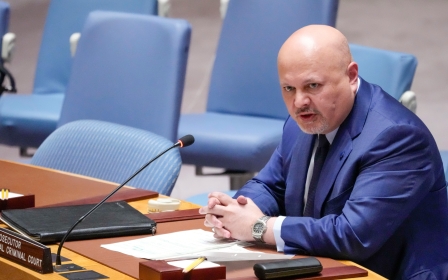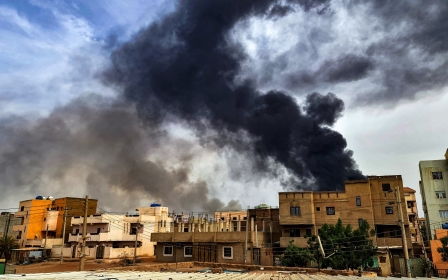Sudan government representatives arrive in Jeddah to resume talks with RSF
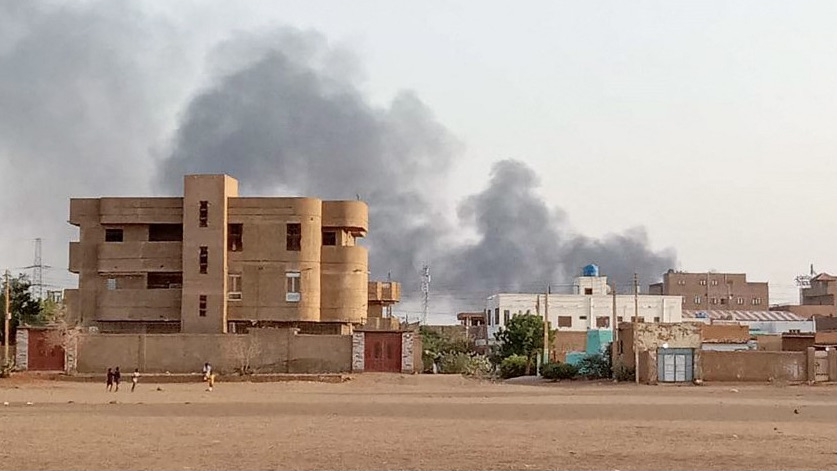
Sudanese representatives have arrived in Saudi Arabia's Jeddah to resume talks with the paramilitary Rapid Support Forces (RSF), Sudanese government sources said on Saturday, after three months of fighting between the army and RSF.
Previous talks in Jeddah facilitated by Saudi Arabia and the United States were suspended by both countries in early June after numerous ceasefire violations. Saudi Arabia and the US have yet to confirm the resumption of talks between Sudan's warring factions.
Separately, a mediation attempt launched by Egypt began on Thursday, an effort welcomed both by the Sudanese army, which has close ties to Egypt, and the RSF.
A series of ceasefires have failed to halt the fighting which broke out on 15 April as the army and RSF vied for power. The conflict has seen more than three million people uprooted, including more than 700,000 who have fled to neighbouring countries.
There were new clashes on Saturday in both Omdurman and Bahri, Khartoum's adjoining cities that make up the wider capital, witnesses said.
At least four civilians were killed and four injured in a drone strike that targeted a hospital in the city of Omdurman, Sudan's health ministry said, accusing the RSF of carrying out the attack.
Sudan's army put the death toll from the strike on the Medical Corps Hospital at five.
Ethnically charged attacks
Also on Saturday, the RSF issued a statement denying the findings of a Human Rights Watch report which found that Arab militias and RSF forces had killed dozens of civilians in a single day in the West Darfur town of Misterei in May.
The raid was one of a wave of ethnically charged attacks that have spread in Darfur since the outbreak of fighting in Khartoum.
The RSF said the violence in Misterei and in the nearby city of el-Geneina, the capital of West Darfur state, was "purely tribal" and that they were not a party to it. It said its forces had been withdrawn from Misterei to El Geneina at the time of the 28 May killings.
Multiple witnesses and activists have reported RSF involvement in perpetrating violence in El Geneina and elsewhere in Darfur.
A mass grave of at least 87 people allegedly killed by the RSF was found in the Darfur region, the UN said on 13 July.
According to what the UN Human Rights Office described as credible information, the victims from the non-Arab ethnic Masalit group were killed by the RSF and allied armed groups between 13 and 21 June outside el-Geneina.
Locals were forced to bury 37 bodies on 20 June in a one-metre-deep mass grave. An additional 50 bodies were buried at the same site the following day.
The bodies of seven women and seven children were among those buried in el-Geneina’s Al-Madaress and Al-Jamarek districts.
Volker Turk, OHCHR's high commissioner, called the RSF and warring parties in Sudan to allow searches for the dead and ensure they get a decent burial.
“I condemn in the strongest terms the killing of civilians and hors de combat individuals, and I am further appalled by the callous and disrespectful way the dead, along with their families and communities, were treated,” Turk said.
“There must be a prompt, thorough and independent investigation into the killings, and those responsible must be held to account.”
The RSF, which is led by Mohamed Hamdan Dagalo, has been at war with the Sudanese Armed Forces (SAF) since 15 April after months of tensions over a transitional political plan that would have folded the RSF into the regular military.
Middle East Eye propose une couverture et une analyse indépendantes et incomparables du Moyen-Orient, de l’Afrique du Nord et d’autres régions du monde. Pour en savoir plus sur la reprise de ce contenu et les frais qui s’appliquent, veuillez remplir ce formulaire [en anglais]. Pour en savoir plus sur MEE, cliquez ici [en anglais].


